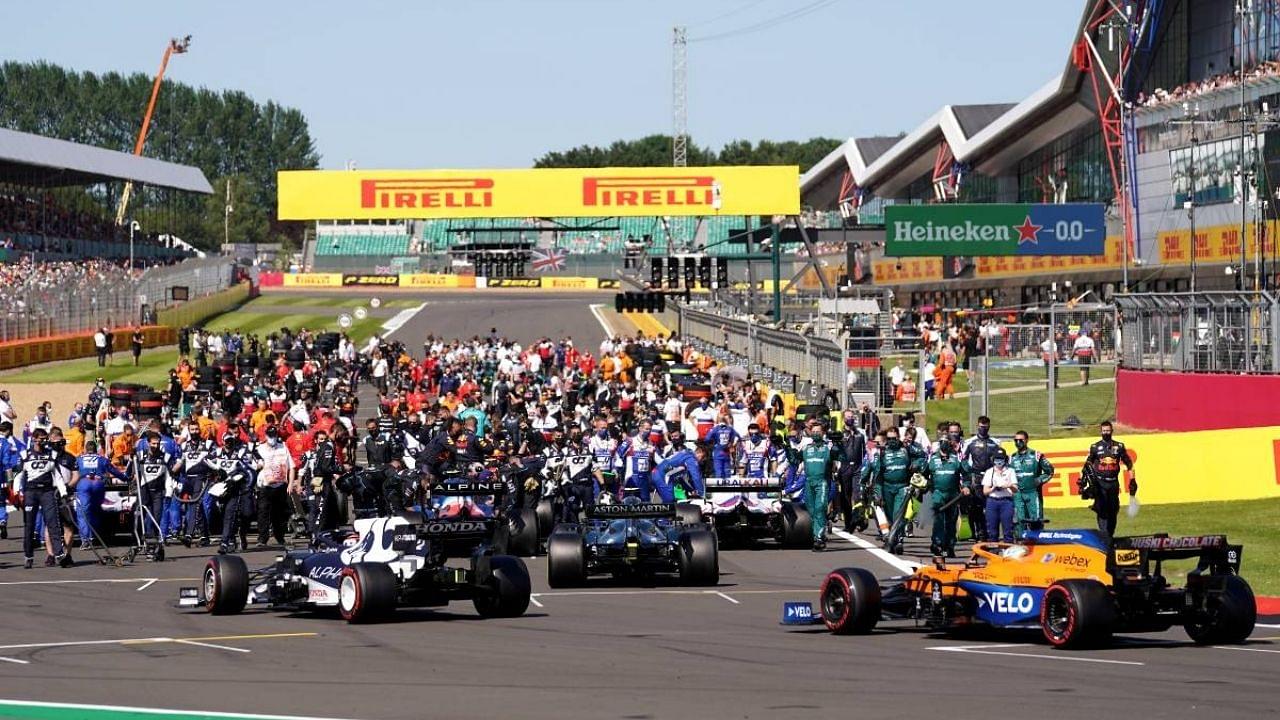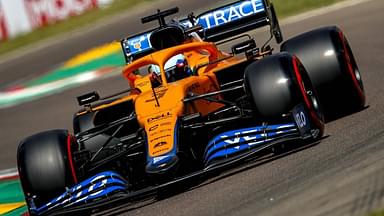The 2021 season turned out to be the busiest season so far with the 22-race calendar with three triple-headers towards the end of the season.
Several F1 drivers struggled a bit to adjust to the jam-packed 2021 season race calendar. The busy race schedule included three triple-headers that left the personnel with little time to adjust between the GPs.
Last year November’s triple-header spanned across Mexico, Brazil and Qatar over three weeks. This, particularly, caused some problems with jet lag.
Pierre Gasly said that he was “struggling” with a lack of sleep during that week. When asked how did he handle the jet lag, Gasly said, “not great. I’ve been, let’s say, struggling quite a bit with the sleep and recovering properly, but that’s fine. We’ll get it out of the way and we’ll do it the best way we can.”
#AMuS F1 is thinking about a rotation principle in the race calendar for the future.
There are lots of requests from everyhwere, wanting to host a race: Africa, Asia, USA.There is talks that South Africa wants to host a F1 race again, Morocco as a possible new host.
— tami. (@Vetteleclerc) November 30, 2021
Lance Stroll agreed with the AlphaTauri driver and pointed out that the effect was brutal. He said that in his case at least, this wasn’t helped by alarm problems.
“I was having a really nice sleep on Monday night after Brazil because I hadn’t slept in a few days in Brazil,” Stroll explained.
“I was having such a nice night, and [at] one o’clock in the morning I had this freaking alarm problem. [It] kept going till five o’clock, so it’s just not meant to be these days.”
For Charles Leclerc, the problem was waking up at 4 am during the triple-header. He said, “I normally sleep very well, but here it’s strange. I don’t struggle to fall asleep, so at 10.30 pm [or] 11 pm, I am already sleeping. But then at four in the morning, I wake up, and I’m just awake. And so now I’m tired.”
Also Read: Former Red bull driver spots why Lewis Hamilton struggled against Max Verstappen in 2021
F1 race calendar creates stress on the body
Even though the Ferrari driver faces problems with his sleep schedule, he feels that the tiredness as soon as the adrenaline kicks in during the race weekend. However, he admitted that November’s triple-header was an event where he was most affected by jet lag in his career.
When asked what he did waking up so early, he completely ruled out the gym and said, “oh, no, I just try to fall asleep again. But I just can’t. [You’re] closing the eyes and you’re like, ‘Okay, I’m going to check a bit the phone, 15 minutes. That’s the worst mistake.”
With the new #F1 race calendar, is 23 races enough for 2022? Please, leave your comment down below to be featured on our podcast. @F1 #TFR #ABM #FOR #OhYeah @Fia @F1_USA_ @mikeallen_ota @f1fantwo
— The Forum of Racing (@ForumofRacing) November 3, 2021
“And then you try to sleep again and you just can’t make it [happen], so I just wait for the time to go to the track then.”
Furthermore, Haas’ 2021 rookie Nikita Mazepin said that this kind of schedule is new to him. He said, “it’s my first real experience of travelling between continents. And actually, I’ve said it before, but I’ve never been to the continents like Mexico and Brazil and [the] US before.”
“So it’s been great being there, but obviously just having four days to fly over, and I’ve taken off at 11 o’clock and then landed here at eight o’clock in the evening, and it was dark when I took off and it was dark when I arrived.”
“So, internally, my body is a bit stressed. But yeah, [I’ve experienced] very similar things to everyone. You wake up very early, and then try and survive until the morning and hope the evening comes quicker,” he further added.
Also Read: Christian Horner thinks Max Verstappen can outperform Lewis Hamilton in same car
An exception who did not face as much trouble with the chaotic F1 calendar
Kimi Raikkonen – who retired from motorsport at the end of the 2021 season does not have problems with sleeping. Although, he sympathised with others on the grid who did.
He explained, “When I started [in F1 in 2001], I think we had 14 races. 14 or 15, something like that, the first year. So it was different, but then there was testing between the races, so I don’t know which [is better].”
“I think more races is actually better than going [to a] race and then testing for a couple of days, two or three days, and then going to the next race. So I don’t think it was any easier that way, even though there was less racing. I’ve been home in-between all of the races [in 2021].”
Furthermore, he said that he never really faced any major issue with jet lag. But he understands that with people who are going through long hard days – the mechanics – it’s hard for them.
23 races plus 6 sprint races. The teams are being pushed to the limit with the only winner being Liberty Media. F1 is starting to look like Nascar #F1
— Cavallino Rampante (@CavallinoRampa2) November 3, 2021
“The problem [is] people burn out. I think, maybe as a spectator, there’s a lot of people [who] it’s nice for, having a lot of races.”
“But [for] the people that actually do the most of the work, it’s very difficult for them. There has to be some kind of better way of dealing with that. [For] some teams it’s not just the option to hire more people, because they don’t have money to hire, so it’s a bit tricky,” he added.
Formula 1 is set to make a return with a record-breaking 23-race calendar in the 2022 season.
Also Read: Guanyu Zhou reveals Kobe Bryant is inspiration for his car number






